Last Updated on August 5, 2021

Oftentimes, the villain is the best role for an actor to play. Especially when it comes to Quentin Tarantino and his sly brand of cinema, there is nothing like taking on the creepy dude that likes to cause a little pain for an actor and making it work. In Tarantino’s upcoming feature DJANGO UNCHAINED, he brings back INGLOURIOUS BASTERDS star Christoph Waltz along with the very talented Walton Goggins. Word on the street is that Mr. Goggins will blow people away as a particularly nasty baddie. After talking to Goggins and Waltz – as well as Jamie Foxx and Kerry Washington – this year at Comic Con along with a small panel of journos, my excitement for this feature has gone through the roof. Below, check out what Goggins and Waltz have to say about this highly anticipated flick due out on Christmas Day.

I just wanted to say for “Justified,” you talked about how important it was for you to not perpetuate stereotypes about the South. So, did you have any reservations going into this film?
Goggins: Not when it’s in the service of talking about the subjugation of an entire race of people and the horrific nature of this portion of our history. In that way, I’m in the service of something much greater than myself. I’m a tool in a tool belt of one of the most important auteurs in our country’s history. So, in that way, this is not gratuitous and I don’t feel that I’m being used in that way, but I feel like I’m being used as a person who delivers the horrors that were actually perpetrated against these people and I think this story is not just told for one generation, but it’s a story that needs to be retold over and over and over and over again, because it’s a major part of our history.
Well, it’s interesting because Tarantino has said that at least part of this movie was inspired by the film GOODBYE UNCLE TOM, which is pretty much one of the most offensive movies ever made. How did you guys enter into this while acknowledging something like that was going to be an influence, particularly because that film has such a misguided earnestness when it comes to depicting this stuff and it ends up being just as exploitative as it’s attempting not to be.
Goggins: Yeah. You know, there are so many metaphors going on in this movie. It’s a bitter dish served up with a good bit of honey because what Quentin was able to do, which is what many other directors can’t do or aren’t given an opportunity to do is thread the line between violence and the absurd. So, with these atrocities going on, you’re still kind of able to laugh. If you’re laughing too much, you’re reminded that that’s a human being hanging from a rope. That happened. When you’re in the depths of the violence, then you’re also, you know, in an Elmore Leonard kind of way, through the Quentin Tarantino “line” you find yourself f*cking laughing. It’s weird, man. It’s weird, but it’s important and I think that Quentin Tarantino is the person to tell this story for this next generation.
Did you find yourself channeling any of the darker nature of this character?
Goggins: You know, there were a lot of these African American actors, Omar Dorsey who plays one of the Mandingos, and these are friends of mine, you know? There were days where I’d just begin each take with an apology and end it with an apology, but I got them to believe what I was saying, but these were friends. It was very hard for them. It’s just so hard to say those things, but we are all in the service of, again, something greater than ourselves and, at the end of the day, you’re grateful to be in a Quentin Tarantino interpretation of this part of our history.
When you look at the clips that have premiered, thus far, it seems like this is sort of boisterous and also kind of a fun experience in a way, and yet, obviously, it’s addressing these very serious things and the way that you describe it makes it seem like it’s a much more straightforward, dramatic piece.
Goggins: No, no, no. I know it’s not like that, at all. When you need to be reminded that this is serious, it gets serious. I mean, this guy that I play, when it all went down, I thought, “This is Quentin Tarantino and Billy Crash better be a cool motherf*cker.” Not in the way that Boyd Crowder is cool, it’s a completely different experience. You just kind of have that in the back of your mind. You know, this is a guy who you have to listen to everything that he says and you’re on point. He constructs this environment that is so conducive to laughter. You know, everybody is having a really f*cking good time and then, in a moment, your focus zeros in and then it’s like, no. This is the story that we’re telling.

When you think of Tarantino, there are signature viscous moments, like the cutting of the ear in Reservoir Dogs. Can you unload? Do you have such a moment where it just goes way beyond whipping?
Goggins: Oh, yeah. There are multiple moments like that. Moments that are shocking and so weird. I mean, some of these images that I participated in, I could not believe that I was in the image. I was inside the painting that I was trying to look at as a spectator. It’s so f*cking weird and strange. Yeah. It’s Tarantino at his best, I think.
Speaking about the violence, you know, he took on the Holocaust with this revenge fantasy that I feel everybody had permission to give over to the violence and enjoy it with that movie, but here, it seems a little more tricky because it’s going to go both ways. To an uncomfortable place and then- Does it go to a vengeful place?
Goggins: Again, you know, he’s not really taking revenge on white people. You know, Django says in the trailer, “I get to kill white people and get paid for it. What’s not to like?” and that’s pretty self explanatory, but, I think a lot of things die in this movie. You know, some are physical, some are external and a lot of things that are internal. You can take that for whatever it means, but, for me, I like the complexities of it. Yeah. Make your dinner reservations now because you will want to go out to dinner and talk to someone after you see this movie. See it with a lot of people.
Just tell me when and we’ll make those reservations!
Goggins: Christmas Day, dude.

The first time I saw INGLOURIOUS BASTERDS, in the opening scene where you are introducing yourself and you go through the process of speaking English and then German and then French, what’s really interesting is that scene really only appreciates the more times you watch it, because you understand once you sort of see what happens like what is going on the entire time.
Waltz: So watch it a few times.
Of course. I’m just wondering, when you’re coming in and looking at these sequences, like how clearly defined they are to you by Quentin and then how much work you have to do to sort of map out exactly where you’re going to end up…
Waltz: Yeah, but it’s not that academic. It’s not that scientific, you know. I know lately over the past few decades, the arts, to call it such, had this tendency to usurp scientific terms and contents. I’m not so sure that, you know, real scientists laugh about that. So, no seriously. Um, so it’s neither that scientific, nor is it academic in any way. It’s all human beings. They are different every day, every morning, according to what happened, biochemically… the air pressure and the weather and whether you feel good or bad—all of that sounds very indulgent but it does play an important part in it. And then, every scene as it’s written, demands a different approach. Every story as it is written, demands a different perspective and a different shift of thinking, maybe. And then if you put all of these things together you really have very few concrete, or rather closely defined coordinates. You do have your intention, your talent, your willingness to put in many hours and hard work, but what do you do, how do you usually do—not really.
Did Quentin provide you with any sort of like cinematic antecedents or cultural references to build into the character, or did he leave you to kind of find your own way?
Waltz: All me. I’m 56 years old, I’m from Europe. I saw these spaghetti westerns when they came out. I have a different approach to the genre than people here in America would. First of all, I saw Django, not exactly when it came out, because it was 18—what do you call it here when only adults can see a movie?
R rated.
Waltz: Yeah. R rated, exactly. So you know, not with DJANGO, but with ONCE UPON A TIME IN THE WEST, I tried, I think for two years to see it, and finally I did, when I was about 15, you know. But I saw all these movies, because that was really, when I grew up was the year of spaghetti western. So I knew most of the—of course I knew all of the Leone ones, but I knew most of the Corbucci ones too. And Django in Europe has a completely different connotation because everybody – nowadays I don’t know if that’s true but when we were youngsters, Django was an icon. Everybody knew Django, there was Django this, Django that, because every spaghetti western had in its title Django. Especially in its German version. So it was Django blah blah blah. Django Shoots Them All, Django Rides Again, Django, you know, in the Desert. It didn’t have anything to do with Django. Do I make sense?
Yeah. Absolutely.
Waltz: But they just put it in because it was such an iconic term. Django was spaghetti western. And we all knew Franco Nero. Franco Nero was a superstar. All over Europe.

Can you talk about his cameo in the movie?
Waltz: Yeah, well, I don’t know about cameos, you know, because I never know, I never know what it’s really supposed to be. Very often its just have a well known face up here on top of everybody else. But in this case it was almost the uber father, the uber father kind of super ego, who was kind of overseeing the new version. At least that’s how it felt to me.
You have about a week left of shooting, is that right?
Waltz: Six days.
Are you back in Louisiana or are you here—
Waltz: No, no, no, it’s here.
You mentioned how your point of view into Django is different. How then is the entire foundation of this, examining this time in American history, what is—
Waltz: You’re absolutely right because of course I was familiar with the broader aspects of, you know, the South, the North, the Civil War, what led to the Civil War, what were the results, the nation forming factors and elements of this conflict, that in a way exists to this day. Why does it exist to this day, or then going backwards, the actual reason why we should study history. But the finer points, I never really looked into that much because you know, history in Europe is predominantly European. Not that we pretend that something else didn’t happen, but you know, anyway. So to actually learn how, or learn yes, but find a view and a perspective on what I see today, that it has historical background, that it is not just what I thought was market economy and the destructive forces of market economy, but that it actually has a historical foundation, and by looking into more details of American history, make more sense of what’s happening today. Really one of the greatest rewards of doing this job.






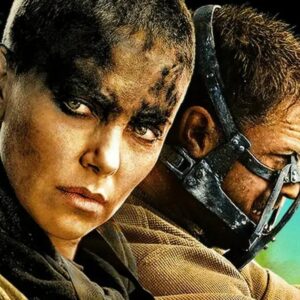
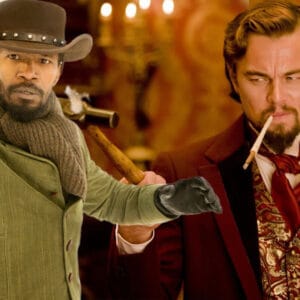
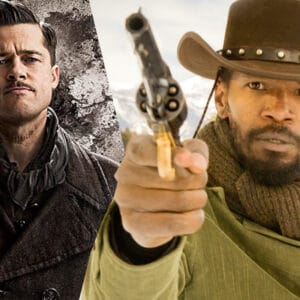
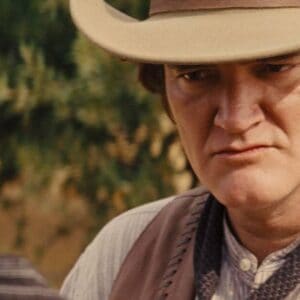

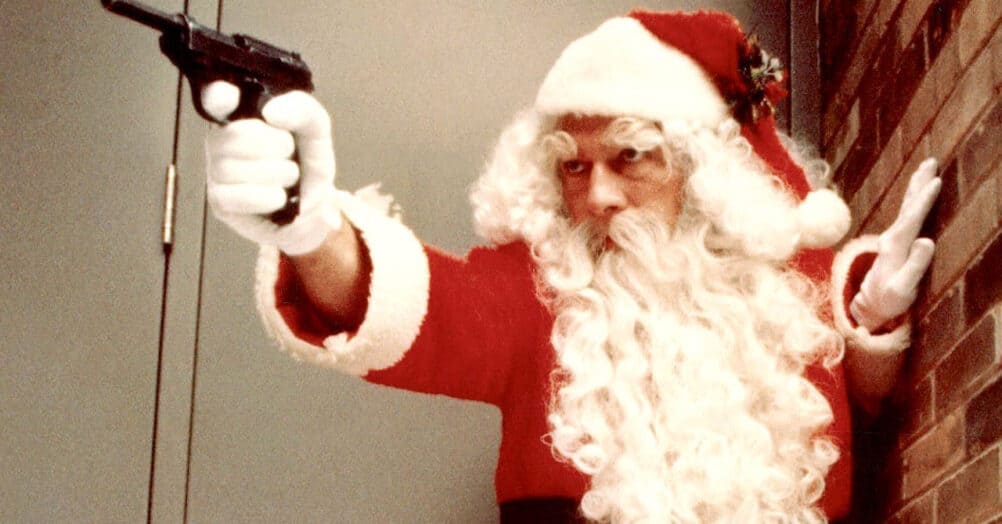

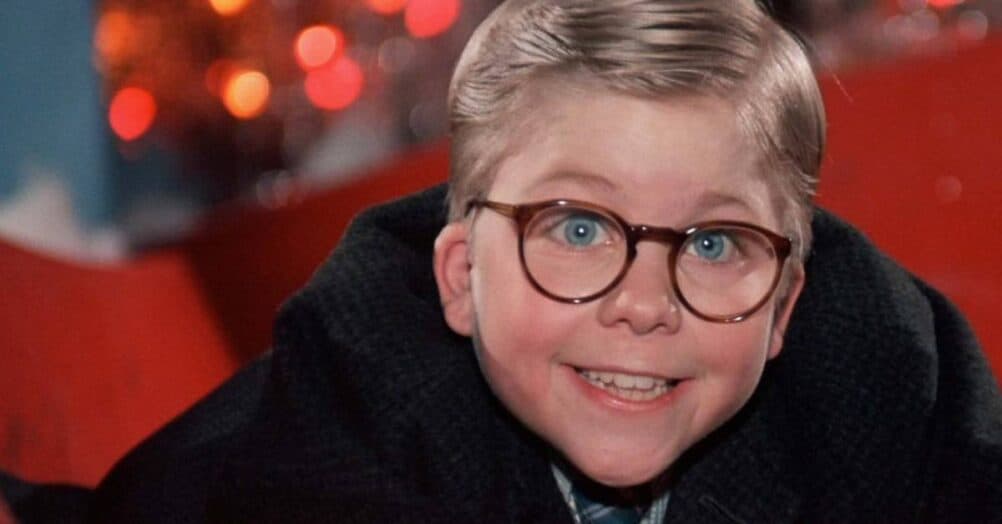






Follow the JOBLO MOVIE NETWORK
Follow us on YOUTUBE
Follow ARROW IN THE HEAD
Follow AITH on YOUTUBE